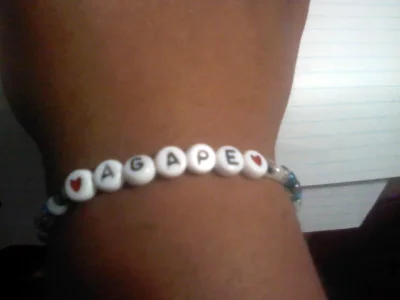Gaze
Donor
- MBTI
- INFPishy
Here's a great site describing the types of love.
What types of love do you think are easily confused?
Which of the following types of love tends to feel more personally enriching to you?
http://nateperkins.com/kirbyguides/love.html
What types of love do you think are easily confused?
Which of the following types of love tends to feel more personally enriching to you?
http://nateperkins.com/kirbyguides/love.html
~*~*~ Styles of Love ~*~*~
Love is rarely (maybe even never) stable. It will fluctuate. Your own style of love may fluctuate throughout your life, and you may even have a different style of love with different people or in different stages of the same relationship.
One popular theory, created by sociologist John Lee, describes six different styles:
Eros Love: Refers to the romantic love that has tremendous passion, physical longing, deep intensity, and intimacy.
Ludus Love: Called the playful love. It is like the love of a knight for a princess. There are playful interactions here but little intimacy or deep intensity.
Storge Love: Exemplifies friendship-based love. There is strong companionship and shared values here but little physical intimacy.
Pragma Love: A combination of storge and ludus love. It refers to practical or logical love in which someone actively searches for a partner with certain characteristics.
Mania Love: A combination of eros and ludus love. It is also known as the troubled or obsessive love. This love has jealousy and dependence (often called co-dependency), great intensity, some intimacy, and many psychological symptoms related to the relationship.
Agape Love: Also a blend of two other types of love, eros and storge. This is the love of altruism, of giving without asking anything in return, and of sacrificing oneself for one's partner. Many would consider it to be the purest form of love. It is much easier to love humankind than an individual in this way.
**********************************
Another one, created by Robert Sternberg, is called the Triangular Theory of Love. According to his theory, love is composed of three elements: Intimacy, passion, and decision/commitment. Each of these elements can be enlarged or diminished during the course of a relationship. And each element or combination of elements produces a different kind of love:
Nonlove: None of the elements.
Liking: Intimacy only. It forms the basis for close friendships but is not passionate or committed. Even so, liking is often an enduring kind of love. (Ex. Friendships)
Infatuation: Passion only. It is marked by sudden passion and a high degree of physical and emotional arousal. It tends to be obsessive and all-consuming. However, this passion is rarely returned equally. (Ex. Crushes, love at first sight, or some affairs)
Romantic love: Intimacy and passion. It is similar to liking except that it is more intense because of the physical or emotional attraction. It may begin as a friendship that intensifies into passion, a passion that also develops intimacy, or with the immediate union of the two components. (Ex. Dating relationships with no real commitment)
Companionate love: Intimacy and commitment. This is essential to a committed friendship. It also begins as romantic love, but transforms into companionate love as passion diminishes and intimacy increases. Some couples are satisfied with such love; others are not and may end the relationship or seek extrarelational affairs. (Ex. Good friends or married couples who no longer have passion for each other)
Fatuous love: Passion and commitment. This is the whirlwind love. Two people meet and the relationship develops quickly, resulting in cohabitation or engagement, and then marriage. Most of the time, the passion fades quickly, and all that is left is commitment. But that also fades with neither passion nor intimacy to help it endure. (Ex. Couples who quickly commit based on passion alone - often portrayed in Disney movies)
Empty love: Decision/commitment only. Some cultures will arrange marriages for financial or social reasons. Individuals will sometimes choose to marry for money or to please their family. This love also sometimes results in married couples who have lost either intimacy or passion or both, but stay together for the children, religion, society, etc. (Ex. Arranged marriages or deeply committed marriages)
Consummate love: Intimacy, passion, and commitment. It is the pinnacle of love, the kind we dream about. It takes work to maintain, which is why it is rare. Many expect this of their love relationships, but are often naive in that they expect it to last forever without actively maintaining each of the components. (Ex. You and your partner, hopefully!)

